France’s latest anti-Islam bill draws fierce condemnation on social media
France’s latest legislative move to ban the wearing of hijab in public by Muslim girls under the age of 18 has sparked fierce condemnation on social media platforms with widespread use of the hashtag #HandsOffMyHijab.
The French Senate’s move against the hijab – a widely diverse headdress worn by practicing Muslim women – came earlier this week as part of a persisting push by Paris to impose a so-called “anti-separatism” law that purportedly aims to reinforce the country’s secular system.
The move is seen as yet another Islamophobic scheme to target the nation’s minority Muslim population.
Debating the controversial legislation on March 30, French senators approved an amendment to the bill on Wednesday calling for what they claim as “prohibition in the public space of any conspicuous religious sign by minors and of any dress or clothing which would signify inferiority of women over men.”
The backlash against the anti-Islam amendment, however, was instantaneous, with many critics saying in the past week that the proposed legislation amounted to a “law against Islam.”
“Age to consent to sex in France: 15 Age to consent to hijab: 18 Let that sink in. It isn’t a law against the hijab. It’s a law against Islam. #Handsoffmyhijab #FranceHijabBan,” read one Twitter post.
Age to consent to sex in France: 15
Age to consent to hijab: 18
Let that sink in. It isn't a law against the hijab. Its a law against Islam. #Handsoffmyhijab #FranceHijabBan— Manar منار (@RockThrowA) April 4, 2021
Another user tweeted, “I thought we already had this covered. Forcing a woman to wear a hijab is wrong. Just like forcing her to take it off is wrong. It’s HER choice.”
I thought we already had this covered.
Forcing a woman to wear a hijab is wrong. Just like forcing her to take it off is wrong.
It’s HER choice.
— Najwa Zebian (@najwazebian) April 4, 2021
The controversy further drew the attention of a number of high-profile figures, including American Olympics woman athlete Ibtihaj Muhammad, who shared a post on Instagram suggesting that the amendment by the French Senate showed that “Islamophobia is deepening in France.”
“This is what happens when you normalize anti-Islamic and anti-Muslim hate speech, bias, discrimination, and hate crimes – Islamophobia written into law,” she added.
Founder of Muslim Women’s Day and the Muslim Girl website, Amani al-Khatahtbeh, also reacted against the controversy move, tweeting, “No government should regulate how a woman can dress, whether to keep it on or take it off,” referring to the wearing of the hijab.
No government should regulate how a woman can dress, whether to keep it on or take it off. #handsoffmyhijab #FranceHijabBan pic.twitter.com/VfuHi02Gqj
— AMANI (@xoamani) April 6, 2021
France’s lower chamber National Assembly, which is dominated by President Emmanuel Macron’s centrist La République En Marche (LREM) party, voted overwhelmingly in favor of the bill on February 16 before it was passed on to the conservative-led Senate.
The legislation has been debated in a highly-charged political atmosphere in France following three attacks last year, including the beheading on October 16 of teacher Samuel Paty, who tried to further highlight the publication of highly offensive caricatures of Islam’s Prophet Muhammad (PBUH) in “a lesson on free speech” to his young students.
Last November, a US-based rights group was among many institutions slamming the French president for issuing an ultimatum at the time to Muslim leaders in France to proclaim that Islam is an “apolitical religion.”
"President Macron must reverse course before his nation returns to the colonial racism and religious bigotry that haunted so many European nations for centuries,” said Nihad Awad, the executive director of Council of American-Islamic Relations (CAIR), in a statement.
“President Macron is turning 'Liberté, égalité, fraternité’ into ‘repression, inequality and division'," Awad added, referring to the national motto of France.
CAIR, the largest Muslim civil rights organization in the US, also condemned Macron’s ultimatum, insisting that "the French government has no right to tell Muslims or any other religious minority how to interpret their own faith."
Meanwhile, Amnesty International last month also warned that the proposed bill posed a “serious attack on rights and freedoms in France,” demanding that “many problematic provisions” of the law be scrapped or amended.
Iran: US airstrikes on Yemen war crimes, violation of international law
Yemeni armed forces down F-18 fighter jet, repel US-UK attack: Spokesman
Iran warns against US-Israeli plot to weaken Muslims, dominate region
VIDEO | Public uproar in US against Israeli regime
‘Ghost town’: 70% of Jabalia buildings destroyed by Israel
Mother’s Day: Sareh Javanmardi’s inspiring journey as Paralympic champion and mother
Russia downs over 40 Ukrainian drones as Putin vows 'destruction' on Kiev
VIDEO | Yemen: A bone in Israeli neck





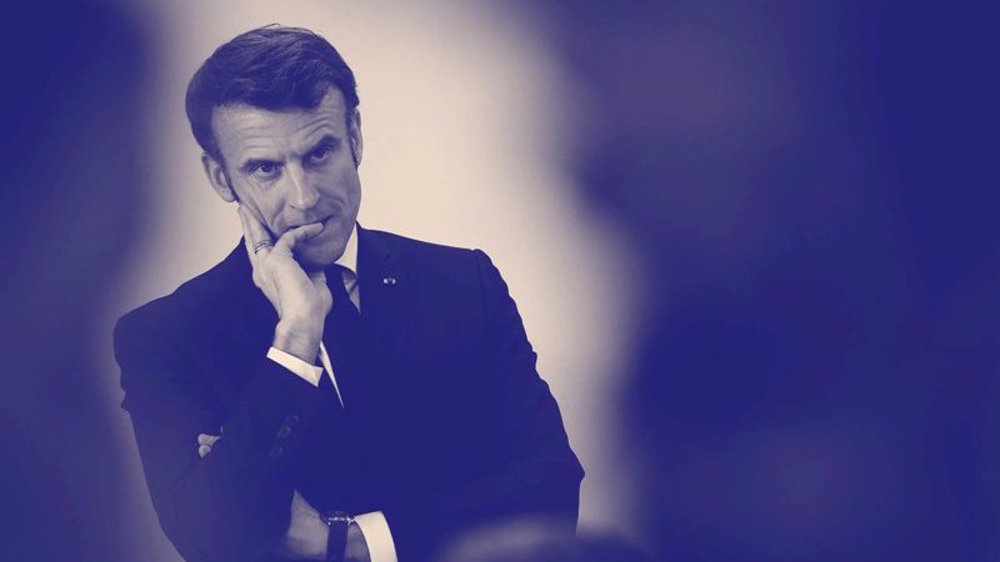



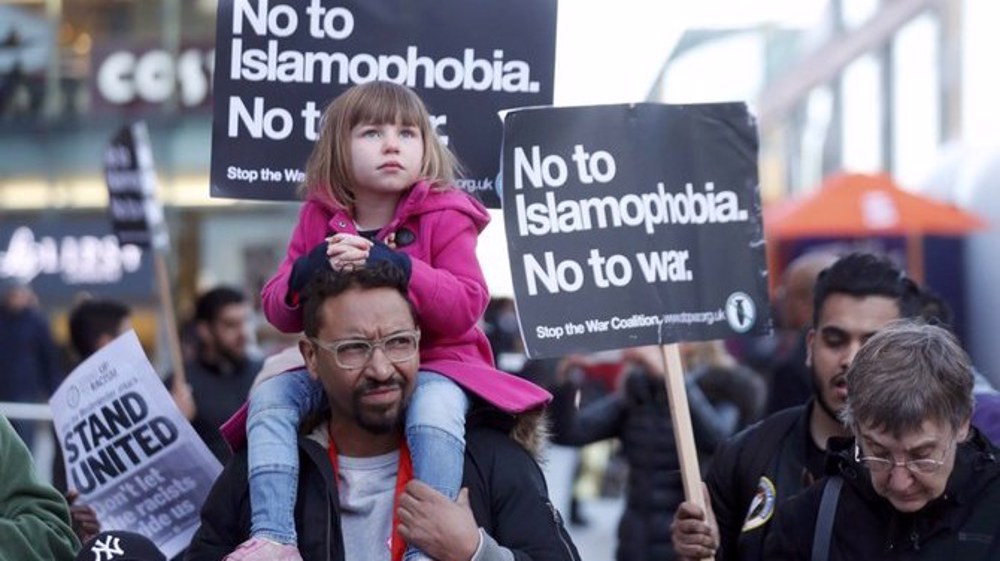
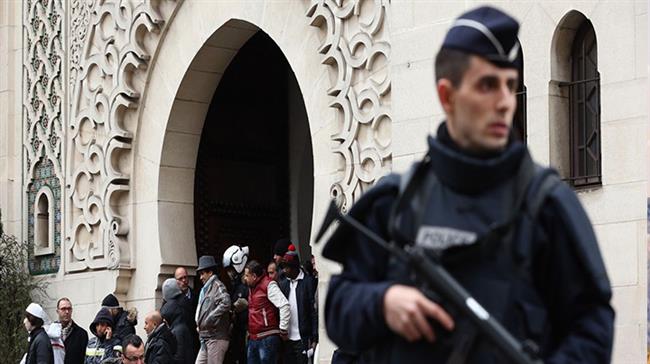
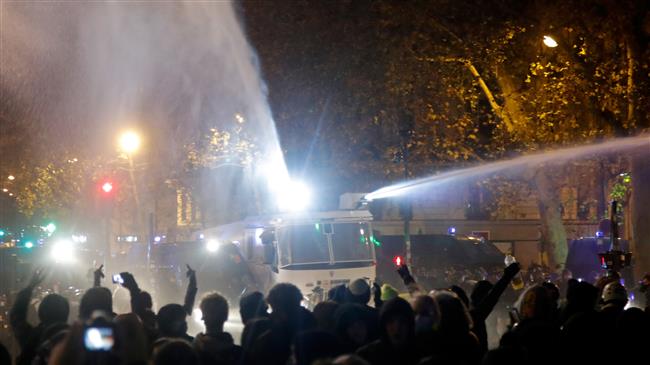
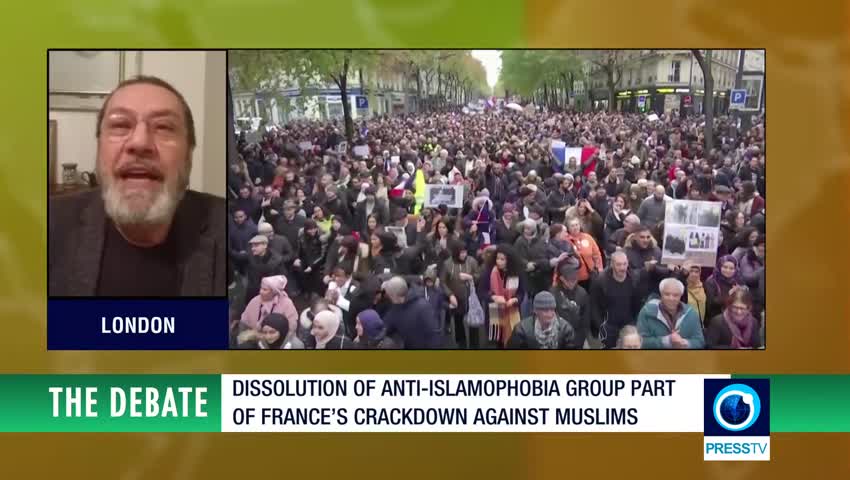

 This makes it easy to access the Press TV website
This makes it easy to access the Press TV website